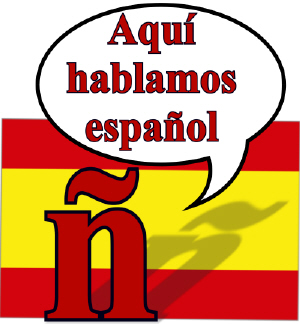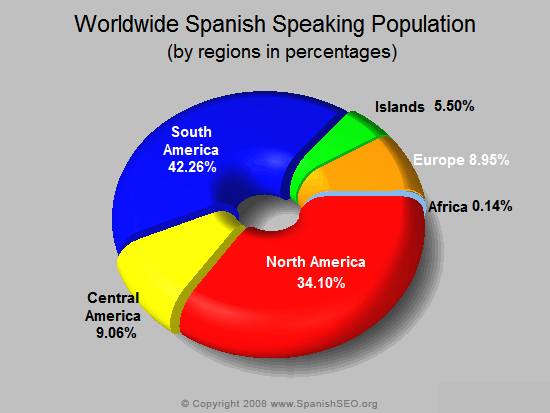For those affiliates who market to the Spanish-speaking audience there are some different challenges to overcome in terms of search engine optimization (SEO). In order to get higher rankings and be one of the first choices that players run into when they hit search these affiliates need to make extra considerations. The Spanish-speaking audience is extremely diverse and there is also the need for effective translators and assistants who are fluent in the language. This article aims to provide three golden rules for affiliates who work with the Spanish speaking online gambling market, so that they will be on their way to increasing profits.
RULE No. 1: Pick a Region
When you market to the Spanish-speaking audience you should take into account that they speak different Spanish in different places. Yes, you heard that correctly! There is more than one “type” of Spanish. The issue is that due to shifts in accents, colloquialisms and slang, people in Spain and in the different countries of Latin America sound very different from each other and often use different slang and idioms to name different things. This is important for gambling affiliates because gambling is a concept that is often described using idiosyncrasies and slang.
 In case you were panicking, don’t worry, the case is not so extreme. Spanish speakers do understand one another when they speak even if they come from different places, however they will probably use different words when they are using a search engine. Therefore, the first decision affiliates should make for Spanish SEO purposes is whether they are targeting a specific country, or if you are taking a more universal approach to the Spanish-speaking market. This decision involves knowing the difference of whether you should use regional colloquialisms and expressions as opposed to a standard form of the language when you do keyword selection.
In case you were panicking, don’t worry, the case is not so extreme. Spanish speakers do understand one another when they speak even if they come from different places, however they will probably use different words when they are using a search engine. Therefore, the first decision affiliates should make for Spanish SEO purposes is whether they are targeting a specific country, or if you are taking a more universal approach to the Spanish-speaking market. This decision involves knowing the difference of whether you should use regional colloquialisms and expressions as opposed to a standard form of the language when you do keyword selection.
This chart shows the distribution of Spanish speakers in different regions of the world:
 RULE No. 2: Do Keyword Research
RULE No. 2: Do Keyword Research
Google is the primary search engine used in Spanish speaking countries, so your SEO keyword selection and link-building will be crucial to succeed in this market. In order to improve your website’s rankings, it is good to do some keyword research instead of directly translating the terms used in English. This is very important because it could turn your conquering-the-Spanish-market project into ashes.
Need more information on how to boost your web presence through SEO? Try SEO Book.
For example, if you decide to use “slot machines” as a keyword and you decide to target the whole Spanish speaking market, your best shot is to use the word “tragamonedas” (which means “coin-swallower”), the more generic form of the word. However, if you are targeting the online gambling market in Spain you won’t get anywhere with this word as Spaniards use the word “tragaperras” (same word with a slight shift: “bitch-swallower”) as these is the word commonly used in that country. Carrying out good research to find out what the popular local keywords are will definitely be more effective in drawing traffic to your site.
RULE No. 3: Get Extra Help if You Can
If you are not a native Spanish speaker you will probably need to hire one or two people who are fluent in the language to help you out. Some affiliates use other resources, like dictionaries and automated translators, to do all the SEO work on their own, but it is significantly better to use people with the appropriate skills for the job. The explanation for why hiring someone is your best option is that dictionaries and automated translators don’t understand the intrinsic aspects of a language, and this will be a problem especially if you are targeting a specific region of the Spanish speaking market.
If you need more help with dominating a language, try the Language Niche Domination Tool.
The best option for when you plan to hire someone is to find a native speaker with some experience in the online gambling field, someone who is close to the aspects of the language that you are trying to exploit. Non-native translators do a good job interpreting terminology, but they are not always good at understanding the context of the language in different parts of the world, a key aspect to Spanish SEO.
Do you do business with Spanish speaking online gamblers? Are you looking for more people interested in this topic? Feel free to surf and share your thoughts at our forums!